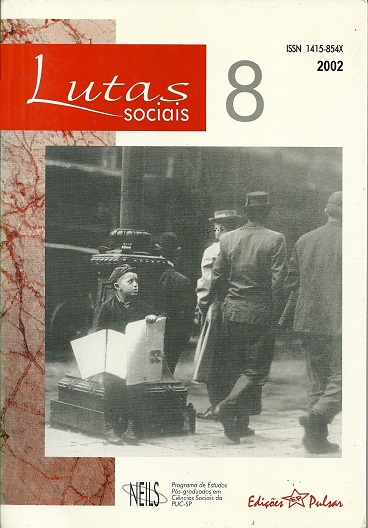Por que a Revolução dos Cravos deixou de ser socialista? Entrevista com o tenente-coronel Otelo Saraiva de Carvalho
DOI:
https://doi.org/10.23925/ls.v0i8.18916Palavras-chave:
Lutas sociais, ideologias, marxismo, movimentos sociais, EstadoResumo
Em meados de 1973, surgiu, no interior das Forças Armadas portuguesas, o Movimento dos Capitães, cujos objetivos eram, no início, apenas sócio-profissionais. Com aRevolução de 25 de abril de 1974, chefiada pelo agora chamado MFA - Movimento dasForças Armadas -, ocorreu a divisão em três correntes.Os oficiais moderados, mais próximos dos socialistas eram, simbolicamente, liderados pelo grupo dos nove (entre eles, o mentor intelectual do programa do MFA, major Melo Antunes). Os "gonçalvistas" defendiam o aprofundamento da revolução numa linha terceiro-mundista ou das chamadas “democracias populares” do Leste Europeu e contaram, por algum tempo, com o apoio dos Partido Comunista Português e do Primeiro-Ministro, coronel Vasco Gonçalves. A terceira vertente do MFA era a dos "copconistas" (do COPCON, Comando Operacional do Continente), liderados por Otelo Saraiva de Carvalho, cuja entrevista, de importância histórico-política inestimável, Lutas Sociais tem a satisfação de publicar.Métricas
Carregando Métricas ...
Downloads
Publicado
2004-06-19
Como Citar
rampinelli, W. J. (2004). Por que a Revolução dos Cravos deixou de ser socialista? Entrevista com o tenente-coronel Otelo Saraiva de Carvalho. Lutas Sociais, (8), 101–108. https://doi.org/10.23925/ls.v0i8.18916
Edição
Seção
Dossiê
Licença
Matérias assinadas não expressam necessariamente a posição do coletivo da revista e são de exclusiva responsabilidade do(a)s respectivo(a)s autore(a)s.
Ao enviar seus textos, o(a)s autore(a)s cedem seus direitos à Lutas Sociais, que autoriza, com prévia permissão do Comitê Editorial, a reprodução das publicações, desde que conste o crédito de referência.



